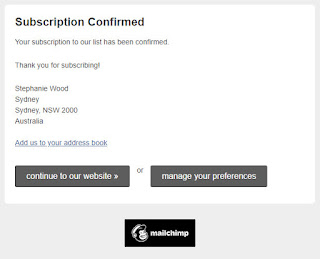To begin with, here’s what people yesterday saw when they tried to post links taken from Australian news websites:
I saw this humorous take early this morning in my Twitter timeline:
Taking a lead from Chris’ approach – while the BBC home page early this morning (Sydney time) featured a story about the ban, the New York Times’ site did not – my post today contains an often light-hearted take on a first-world problem as the social media giant goes head-to-head with the Australian government. I take a term out of the playbook of one of my favourite TV shows – ‘Hard Quiz’ (Wednesday nights at 8pm on the Australian Broadcasting Corporation’s main channel) – keeping in mind Tom Gleeson’s Monty Python-esque suppressed grin – a self-conscious smirk – as he hams it up, poking fun at all those drama-filled moments we enjoy so much when we watch TV. “Will Diane win a weekend away at Noosa or will she go home with nothing?”
The standard, gimcrack game-show spiel.
We adore the dramatic moment – as long as nothing important’s at stake – but while the Facebook v. Morrison govt contest appears for most to rank low on the criticality stakes, it has affected others hard.
But there could be an upside: we might start learning how to write. https://magnetformedia.blogspot.com/2021/02/facebook-news-ban-puts-australians-back.html So, to put theory into practice, today I cheekily put the following on Facebook:
Two articles abt Facebook’s ban today on the Sydney Morning Herald website. In one, the PM says he’ll take the issue to the G7 in June. Morrison has spoken abt the ban w Narendra Modi, the Indian president. In another article, Stephen Scheeler, a former chief executive of Facebook in Australia and New Zealand, says, “Lying at the heart of Facebook’s abrupt ban on all Australian news is a global strategic gamble that will have a huge bearing not just on Mark Zuckerberg’s behemoth, but on the dynamic between Big Tech and democracy.” He adds: “I suspect its bet is this: that by taking an aggressive hard line with a middle power, such as Australia, a tough message will be sent to the rest of the world to back off on regulation.”
To demonstrate just how irritated they were with the IT company, people were also doing other things. You can, for example, just copy and paste the news article’s entire text, as did this man:
As I've discovered since taking a redundancy from Fairfax Media in 2017, life on the outside as a freelancer is incredibly tough. I'm not sure right now how I'm going to make a go of it. Facebook's action is a blow to freelancers like me who have tried to build communities and followings using the platform. (Never mind the blow it is to multiple other organisations and people who have used it to get important messages out into the world.)
The chair of the British parliament’s committee for the media and tech says Facebook’s “irresponsible” decision to cut off news and official government feeds for Australian users constitutes “bullying” and will unite legislators from around the world into wanting to curb Big Tech’s abuse of its monopoly.









No comments:
Post a Comment